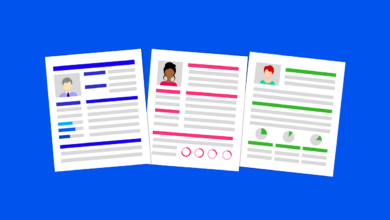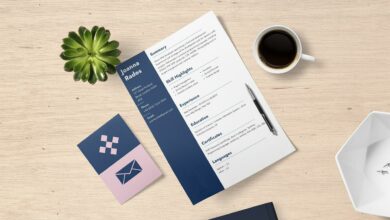How to Write the Perfect CV in 2022

How to Write the Perfect CV in 2022
You found the perfect job, sent your application documents, and patiently waited for the call for an interview but it never came. Why? This was because they never read your Curriculum Vitae. The recruiting manager scanned through and found it not good enough to be read. This is a reason you have to follow this article and learn how to write a CV.
This article will show you how to write a perfect CV even if you have no experience, how to put your skills, experience and achievements on the perfect CV, good CV tips and how to make a good CV that will land you the right job.
The Core Difference Between CV, Curriculum Vitae and Resume?
CV in full form stands for Curriculum Vitae (Latin: Course of Life) It is an academic document which outlines every detail of your scholarly career and is equivalent to the resume in America used to apply for a job.
In hiring industries, there is no difference between CV and resume. CV is British while Resume is American.
So, if you’re applying for a job in a European company, you should create a CV. A Curriculum Vitae contains your work history and experience, educational experience and skills, while a cover letter is a full-blown marketing campaign to get the job.
Learn more on how to organize other work documents
- Documents Required by Employers from Employees in the US
- How to Write a Proposal Letter
- Professional Career Tips for Young Adults
- Ideal Career Choice
- How to Prepare for an Interview
Steps to Create a CV
-
Pick the right CV Format
Bear in mind that your CV always has to beat other applicants’ that are also competing for the job given that recruiters will not go through every detail on an average of 250 person’s CV, first impression is key. A poorly formatted CV will get you disqualified easily, so you have to follow this guide to creating a good format.
-
- CV Proper Order of Sections
- CV Header with Proper contact details
- Personal Profile – CV Objective or Summary
- Work Experience
- Education
- Skills
- Additional sections
If you’ve just graduated with no work experience, you can put the education before Work experience.
When filling these sections, bear in mind the guidelines;
-
- Use clear and legible fonts
- Be consistent with your CV format
- Do not use too many graphics
- Do not add photos to your CV
- Make the CV brief
-
Add your contact information properly
In your contact section, add the following;
-
- Full name
- Professional Title
- Email address
- Telephone number
- LinkedIn profile
- Home address
Recruiters use this section to get more info about you and if this does not match with what they find online, you will be disqualified.
-
Add your personal profile
All it takes to make your CV more appealing is creating your personal profile statement; a short, snappy paragraph of 100 words tops that tells the recruiters why you are just the candidate they’ve been looking for. This can either be your CV objective or summary. CV objective shows what skills you’ve mastered and how you’d fit in while CV summary highlights your career progress and achievements.
-
Add relevant work experience and key achievements
Your work experience is the most important part of your CV as it is where recruiters look to find what you have done, how you did it and what you can offer your prospective employers.
When adding your work experience;
-
- Focus on relevant achievements, not just duties
- Use action verbs: created, implemented, etc.
- Make your CV align with the job posting
-
Add your education section
In your education sector, list;
-
- Your graduation year (If you are still studying, add the expected year of graduation)
- Your degree
- Institution name
- Honors (if applicable)
Include your post-secondary education. Do not as your high school unless it is your highest degree of education. If you have just graduated and have no work experience, place your education before the work section and list;
-
- Your dissertation titles
- Favorite fields of study
- Relevant coursework
- Your best achievements
- Extracurricular academic activities
-
Add relevant skill that align with the job opening
Include an appropriate mix of hard skills, soft skills, and anything in between. When listing these skills, add a description to them example Advanced, Intermediate, Excellent.
-
Include Additional section
In this section, you can add extra things to put you in a better light and give you an edge over the others. This can be:
-
- Industry awards
- Professional certifications
- Publications
- Professional affiliations
- Conferences attended
- Additional training
If you are a student, you can add;
-
- Volunteer experience
- Hobbies and interests
- Projects
- Freelance work
- Academic achievements
- Personal blog
-
Organize all these on a Professional CV template
-
Add a cover letter to you CV
Conclusion
The job seeking world had become very competitive. Following these guidelines will give you an edge over other applicants and help you land the perfect job. You can also use already made templates or seek the help for CV makers to help you create the perfect CV. Keep visiting Dailygam for unique and updated career tips.






